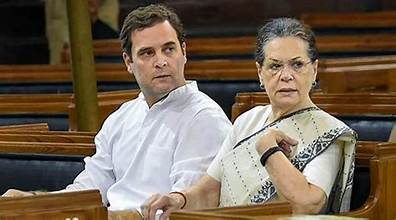India’s prominent opposition party, Congress, has announced plans for nationwide protests following serious allegations of money laundering against party leaders Sonia Gandhi and Rahul Gandhi. These charges have been vehemently denied by the Gandhis, who maintain that the accusations are politically motivated.
Enforcement Directorate Charges Against Gandhis
On April 15, 2025, the Enforcement Directorate (ED) presented its case before a Delhi court, accusing Sonia and Rahul Gandhi of establishing a shell company to illicitly acquire assets valued at more than 20 billion rupees (approximately $233 million) related to the now-defunct National Herald newspaper.
The Congress party’s spokesperson, Jairam Ramesh, dismissed the charges as “politics of vendetta and intimidation,” attributing them to the ruling BJP‘s agenda.
While the Gandhis have previously denied any involvement in financial misconduct, they have refrained from issuing any specific comments regarding the current charges.
Investigation Details and Allegations
The case stems from a private complaint filed in 2021 by Subramanian Swamy, a member of the ruling BJP, who alleged that the Gandhis used party funds to take control of Associated Journals Limited (AJL), the publisher of the National Herald, and subsequently acquired valuable properties through the company.
The Congress party maintains that it rescued AJL due to its historical importance and has loaned over 900 million rupees to the company throughout the years. AJL had become debt-free in 2010, thanks to an agreement that swapped its liabilities for equity in Young Indian, a company created for this purpose.
The Enforcement Directorate has since claimed that Young Indian, in which the Gandhis hold significant stakes, acquired AJL’s assets worth 20 billion rupees for just 5 million rupees, calling into question the legitimacy of the transactions.
Young Indian and Congress Party’s Role
Sonia Gandhi and Rahul Gandhi are both directors of Young Indian, with each holding 38% of its shares. The remainder is distributed among other Congress leaders, including Motilal Vora and Sam Pitroda. The ED also issued notices to seize assets worth 6.6 billion rupees associated with Young Indian in multiple cities, including Delhi and Mumbai.
The National Herald’s Legacy
The National Herald was established in 1938 by Jawaharlal Nehru, India’s first prime minister and Rahul Gandhi’s great-grandfather. It was a crucial platform during India’s freedom struggle, with Nehru himself contributing to its editorial content. The newspaper was forced to shut down in 2008 after struggling with financial issues but was revived in 2017 as a digital outlet.
The newspaper’s original publisher, Associated Journals Limited (AJL), was founded in 1937 with 5,000 freedom fighters as shareholders. It also published other newspapers like Qaumi Awaz (Urdu) and Navjeevan (Hindi).
Although the National Herald was eventually shut down, it continues to be historically significant due to its longstanding ties with India’s independence movement. Nehru often used the platform to express his views, and after India’s independence, the Congress party continued to have a strong influence over its editorial direction.
What’s Next in the Case?
The Enforcement Directorate‘s investigation is ongoing, with a hearing scheduled for April 25, 2025. This case remains high-profile, not only for its implications regarding the Gandhis but also for the wider political and financial consequences it could have on India’s opposition party, Congress. The protests planned by Congress leaders indicate the party’s intent to challenge the allegations and rally support among the public.



















